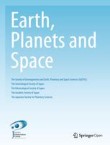Earth, Planets and Space welcomes submissions to this special issue on "Symposium on the Future of Heliospheric Science: From Geotail and Beyond".
Geotail is a joint NASA-ISAS satellite launched in July 1992 to investigate various physical phenomena in the Earth's magnetosphere, especially in the magnetotail region. The satellite was terminated in November 2022 due to the malfunction of the data recorder. In March 2023, we will hold the “Symposium on the Future of Heliospheric Science: From Geotail and Beyond” to present the results obtained by this satellite and to discuss what kind of missions and research should be conducted in the future of magnetospheric physics by expanding on these results. The number of presentations is expected to be 30-40. The proceedings of this symposium will be collected and we hope to publish them as a special issue of EPS.
Topics
1: Global structure of geospace
2. Microscopic phenomena in space plasma: importance of observations
about distribution function/plasma waves
3: Physics of Reconnection (observation)
4: Physics of Reconnection (simulation)
5: Physics of Substorm
6: Importance of dynamics of the magnetotail
7: Contribution of Terrestrial Ions in the Magnetotail
8: Long-term Observation of the Energetic Particle Composition
9: Earth-Origin Ions as Ring Current Source
10: Contribution of Terrestrial Ions in the Magnetotail
11: Particle Acceleration at Shocks
12: Shocks and Interplanetary Phenomena
Submission Instructions
Before submitting your manuscript, please ensure you have carefully read the submission Guidelines Earth, Planets and Space. The complete manuscript should be submitted through the Earth, Planets and Space submission system. To ensure that you submit to the correct special issue please select the appropriate special issue in the drop-down menu upon submission. In addition, indicate within your cover letter that you wish your manuscript to be considered as part of the special issue on 'Symposium on the Future of Heliospheric Science: From Geotail and Beyond'. All submissions will undergo rigorous peer review and accepted articles will be published within the journal as a collection.
Deadline for submissions: 30 April 2024
Lead Guest Editor
Ayako Matsuoka
Kyoto University, Japan
Guest Editors
G. Le
NASA Goddard Space Flight Center, USA
Masahito Nose
Nagoya City University, Japan
Shin Toriumi
ISAS/JAXA, Japan
Rapid publication: Online submission, electronic peer review and production make the process of publishing your article simple and efficient
High visibility and international readership in your field: Open access publication ensures high visibility and maximum exposure for your work - anyone with online access can read your article
No space constraints: Publishing online means unlimited space for figures, extensive data and video footage
Authors retain copyright, licensing the article under a Creative Commons license: articles can be freely redistributed and reused as long as the article is correctly attributed
For editorial enquiries please contact: eic@earth-planets-space.org.
Sign up for article alerts to keep updated on articles published in Earth, Planets and Space - including articles published in this special issue!

